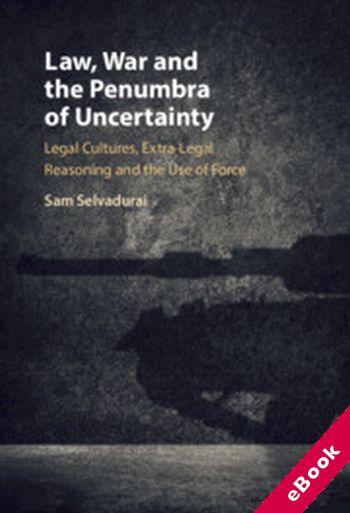
The device(s) you use to access the eBook content must be authorized with an Adobe ID before you download the product otherwise it will fail to register correctly.
For further information see https://www.wildy.com/ebook-formats
Once the order is confirmed an automated e-mail will be sent to you to allow you to download the eBook.
All eBooks are supplied firm sale and cannot be returned. If you believe there is a fault with your eBook then contact us on ebooks@wildy.com and we will help in resolving the issue. This does not affect your statutory rights.
This book argues that lawyers must often rely on contestable ethical and strategic intuitions when dealing with legal and factual uncertainties in 'hard cases' of resort to force. This area of international law relies on multiple tests which can be interpreted in different ways, do not yield binary 'yes/no' answers, and together define 'paradigms' of lawful and unlawful force. Controversial cases of force differ from these paradigms, requiring lawyers to assess complex, incomplete factual evidence, and to forecast the immediate and long-term consequences of using and not using force. Legal rules cannot resolve such uncertainties; instead, techniques from legal risk management, strategic intelligence assessment and political forecasting may help. This study develops these arguments using the philosophy of knowledge, socio-legal, politico-strategic and ethical theory, structured interviews and a survey with 31 UK-based international lawyers, and systematic analysis of key International Court of Justice cases and scholarly assessments of US-led interventions.